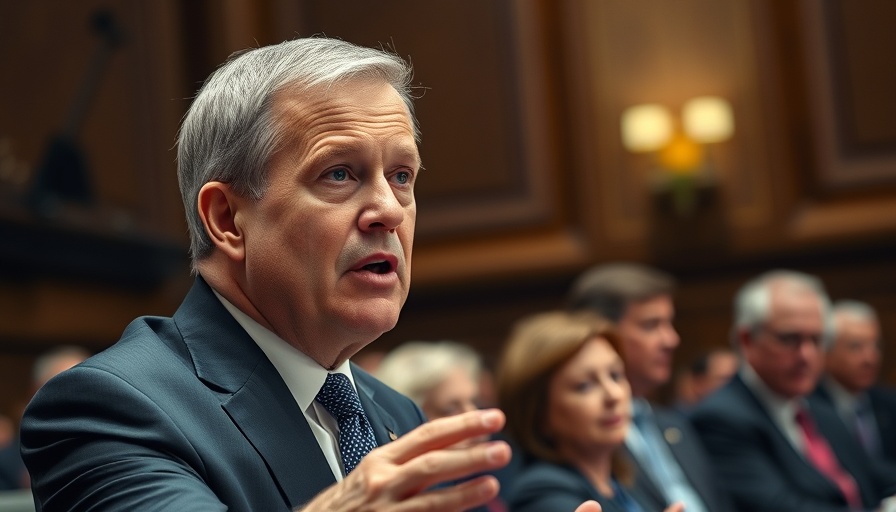
What to Expect from Secretary Rubio's Visit to Israel
As tensions escalate in the Middle East, Secretary of State Marco Rubio's imminent visit to Israel is poised to have significant implications for U.S.-Israel relations and the ongoing conflict in Gaza. The purpose of Rubio's trip coincides with a critical moment; on the brink of a major Israeli offensive in Gaza City, the stakes are high amid ongoing frustrations from President Trump regarding Israel's military strategies. Trump's discontent stems from Netanyahu's relentless campaign against Hamas, culminating in an audacious airstrike in Qatar that targeted Hamas officials. This act has drawn ire from Arab and European leaders, who assert that such actions complicate the already complex situation and hinder peace efforts.
Rising Military Tensions: Analyzing the Gaza Crisis
The backdrop of Rubio's visit underscores a deepening military engagement that continues to extend beyond Gaza. With reports indicating impending offensives, the humanitarian implications for civilians remain dire. Nearly three years into the conflict, voices advocating for a ceasefire seem to grow ever quieter against the backdrop of escalating violence. The differing views among U.S. leadership highlight a complex relationship: President Trump is caught between advocating for Israel's security needs and the growing pressure from various factions to respond urgently to humanitarian crises affecting civilians trapped in Gaza.
What Trump's Frustration Means for U.S. Foreign Policy
As President Trump has openly expressed dissatisfaction with the situation, his administration's foreign policy approach appears increasingly reactionary rather than strategic. The ongoing war with Hamas complicates Trump's ambition to broker an end to the conflict and showcase his administration's ability to manage international disputes effectively. The U.S.'s historically supportive stance towards Israel appears to remain steadfast, yet there is a glaring urgency to balance military needs with diplomatic negotiations aimed at achieving a lasting peace in the region.
Future Implications: Will Peace Ever Be Achievable?
Gazing into the future of the Israel-Palestine conflict raises critical questions about the potential for a long-term resolution. As Netanyahu focuses on dismantling Hamas, critics argue that there appears to be little regard for the smaller details that can lead to fruitful negotiations—specifically, the release of hostages and addressing humanitarian needs. If Israel continues its aggressive military campaign, one must wonder: will the U.S. populace accept the potential for prolonged engagement in the region, or will there be an uprising of voices urging for peace that prioritizes human rights above military objectives?
Moving Forward: The Urgency of Finding Solutions
As Secretary Rubio meets with Israeli officials, these discussions will likely revolve around Israel's military goals while sidelining critical humanitarian implications. Yet, amidst such talks, Rubio's unique position as both a diplomatic face of the U.S. and an advisor in Trump’s national security efforts allows him to bridge these vital discussions. The critical takeaway from this visit will be whether U.S. officials can translate military support into actionable frameworks for peace. The world watches closely, hoping to witness a shift towards diplomacy over prolonged conflict.
In a world rife with conflict, the urgency of the U.S. role cannot be understated. As individuals, families, and communities keenly watch the developments unfold, it becomes imperative to stay engaged with international relations dynamics. Understanding these geopolitical narratives empowers citizens to advocate for decisions that promote stability and peace.
 Add Row
Add Row  Add
Add 




Write A Comment